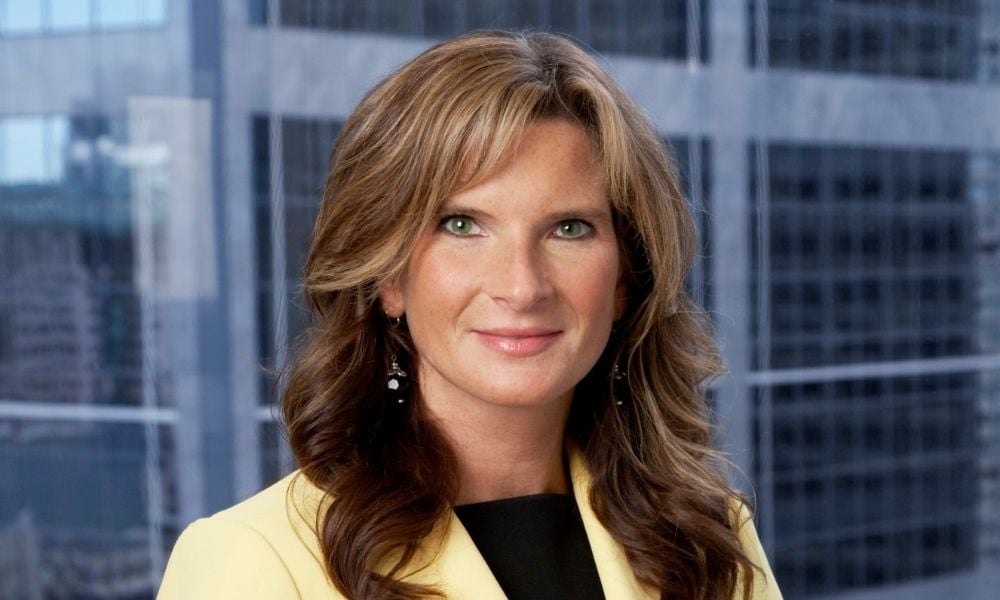
Without a power of attorney, family or friends of an ill person cannot manage their health or assets

This article is part of a series addressing popular topics for lawyers as well as questions that clients and the public may have about the legal profession. We encourage law firms and lawyers to link to this article in their communication materials should it be useful.
Becoming incapacitated and unable to manage your affairs has nothing to do with age, so Suzana Popovic-Montag, managing partner of Hull & Hull LLP, suggests people assign a power of attorney early. A power of attorney is a legal document authorizing a person to make financial or health care decisions on behalf of another. The person who gives this authorization is the grantor.
“As soon as you become an adult, you should be preparing a power of attorney and a will because at that point, you’ve got the legal authority and mental capacity to do so,” Popovic-Montag says.
Popovic-Montag says there are two types of power of attorney. A power of attorney for property allows the attorney to make financial decisions on the grantor’s behalf including, maintaining or selling their home, managing investments and bank accounts and paying bills and collecting money owed to the grantor and a power of attorney for personal care allows the attorney to make decisions concerning personal matters, including health care, housing and general personal care, such as clothing, meals and activities.
A grantor assigning a power of attorney must be mentally capable, at least 18 years of age for a power of attorney for property and at least 16 years of age for personal care. A grantor can name more than one attorney, but they are presumed to collaborate unless stated otherwise in the power of attorney document. A guarantor may also identify alternate/substitute attorneys in the power of attorney document
Without a power of attorney for property, a person’s spouse, family or friends cannot manage their financial affairs. The only alternative is a substitute decision-maker, which requires a court order to appoint a guardian, and Popovic-Montag says it can be expensive and time-consuming. “We always prefer that people get their affairs in order when they’re capable and choose their own substitute decision maker because if they don’t, then someone is going to have to go to court and convince a judge that they’re the best person for the job, and then appoint them and it’s a time consuming and expensive process with no guarantees.”
Without a power of attorney for personal care, the family of an incapacitated person is limited in making decisions. However, a power of attorney for personal care, Popovic-Montag says, gives the grantor autonomy over who will be making their healthcare decisions.
A notable difference with the power of attorneys is that a power of attorney for property can have a continuing power of attorney, meaning the agreement becomes valid the moment it is signed by the grantor, even if the grantor is not incapable. However, Popovic-Montag says a grantor can restrict power of attorney for property document to become effective only when the grantor is mentally unfit. On the other hand, there must be an incapacity before a substitute decision maker is authorized to act as a power of attorney for personal care.
“You’re putting all of your trust and faith into the hands of someone by appointing them as your substitute decision maker. So, you want to make sure you got the right person and that you have no reservations, because they will have unbounded authority,” Popovic-Montag says.
Both powers of attorney for personal care and property grant significant control to the attorneys. Ultimately, the grantor should trust whoever is power of attorney. Popovic-Montag says that more than one attorney can be assigned to ensure increased oversight and accountability, but this creates issues when attorneys disagree on a course of action. She says that powers of attorney can also be abused, especially where there is an oversight on the attorney’s actions.
The Ontario government provides online forms or mail on request for people to complete their powers of attorney. However, Popovic-Montag says it is advisable to consult with a lawyer in more complex affairs such as business management, challenging family circumstances, or foreign property.
Lawyers charge legal fees for drafting a power of attorney so people can complete the legal document themselves to save costs; however, Popovic-Montag says preparing a power of attorney without a lawyer is not the best choice.
A power of attorney is a “small price to pay” compared to seeking a guardianship order from a judge, which requires a management plan for a guardian for property or a guardianship plan for the guardian of personal care from a judge, Popovic-Montag says.
“Most of the time, these can be quite expensive proceedings, and especially if someone’s going to be objecting to it, because then it becomes litigated appointment and costs with any kind of litigation go sky high.”